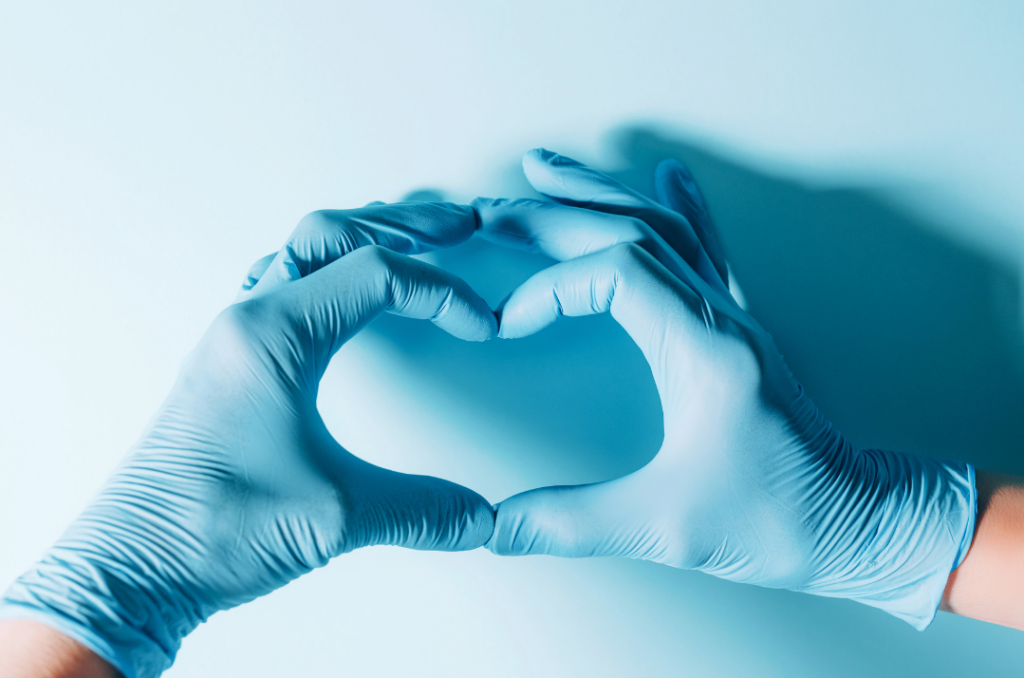For my first time ever in the healthcare field, I’m witnessing joy and optimism be replaced with uncertainty and darkness. As the stressors compound, physicians and other healthcare professionals are experiencing their own mental health crisis from the Covid-19 pandemic. A recent frontline healthcare worker survey shows that 62% of workers feel stressed or worried, and 56% report stress-related sleep problems associated with Covid-19.
Teetering on the edge, physicians struggle to stay strong. But for some, it may be inevitable, the build-up, suppression, and non-treatment of physical and mental stress resulting in burnout.
A look inside life as a doctor in the hospital during the pandemic
What happened to the days where treating urgent yet treatable conditions like asthma attacks, broken bones, pneumonia, and everything in between, was the norm. The days when I’d go into the hospital knowing every day would be a little bit different, always a challenge, and undoubtedly rewarding.
I’d see new patients every couple of days, treat them, guide them and help them get back on their feet so they could be discharged to follow up with their physician for continued care. I felt like I was really making a difference. We all did.
My staff and I were equipped with the knowledge and the tools to make a healing impact on the lives of our patients. The reward was great, and success rates were high. And that’s why we’re in this profession, to make a difference and help people get better.
Instead, the days feel like more of the same.
The same disease —Covid. The same issue of not having a proven treatment to rely on. The same concerns about having minimal supplies and running out of PPE. The same fears of contracting Covid or worse, passing it along to our children and families. The same words… “well, let’s just wait and see if that helps”.
To say the feeling is dark is an understatement.
Doctors, nurses, technicians, and hospital staff have continuously put their best foot forward. Showing up every day, sometimes fearful but always hopeful. As the medical staff goes on about their day, I can see the stress taking its toll.
Being a physician is already a tasking job that carries lots of stress, making decisions on behalf of other’s well-being, and working within the confines of a bureaucratic healthcare system where our hands are sometimes tied. These obstacles came with the territory and we signed up for that. But now it feels different. The deck is stacked and it’s not in our favor.

The Uphill Battle Got Steeper
There was a short lull when hospitals were starting to resume normal caseloads. Public distancing compliance was generally high, and vaccines were rolling out. Confidence levels increased, and there was a Covid-end in sight.
Even as mask requirements were lifted, medical staff stuck with preventative measures, confident in the protection a mask offers. After all, we’re in the face of constant exposure.
Over time the hospital staff felt a restored glimmer of hope. If you made it through the pandemic without getting sick or infecting your family, you began to feel a little relief.
…Until it all started again.
The variant spread, Covid-19 infections continued, the number of non-mask wearers increased, and the number of unvaccinated people contributed to the perfect storm for a flood of very sick patients filling up hospital beds, once again.
Soon, like many hospitals, we were re-opening unused or underused portions of the hospital to care for infected patients who are hospitalized for typically 10-21 days at a time. Hospitals aren’t set up to house patients for two and three weeks at a time. Not at the Covid caseload, we’re seeing.
For the first time ever I’m thinking about alternatives to being a hospitalist
A phrase I’ve come to despise. “Let’s wait and see”. It used to be followed with hope for improvement, but now I can’t be sure if the treatment I’m providing will help. It truly is a waiting game.
As a hospitalist, when you work in 7-day stretches, you can easily build relationships with your patients. When you leave for your 7-days off, you can only hope that upon your return they’ve either gone home or they’re still in the same bed that much closer to recovery.
It’s hard not to be affected so deeply when someone you’ve grown to know doesn’t survive Covid. When their bed is filled with yet another very ill person and the hospital is too full to take any more, including the patients who have conditions unrelated to Covid that need urgent care.
The worst phone call is the one to the family of a patient who passed away under my care. The second worst phone call is to a family whose loved one is dying and I have to explain why they can’t come see them and explain in detail the care and prognosis which is more of the same. A lot of “I think”, “I hope”, “usually”, and “let’s wait and see”.
I love caring for patients and troubleshooting for the treatment method(s) that’ll bring them back to health but with Covid-19 that opportunity feels so absent.
I love working with all hospital staff. They brighten my day, assist and anticipate the patient’s and my needs. They are desperately holding the frontline with us.
It weighs heavily on me because physicians aren’t the only ones who are taking the brunt of this pandemic. I can’t help but wonder, would the staff stay if they didn’t have to? A recent poll shows that 3 out of 10 healthcare workers are contemplating quitting their job and I’m not surprised.
Hospital staff comes to work carrying the unbearable burden of Covid-risk and fear of passing it onto their children and families. Most have seen more patients die in the last two years than ever before in their careers. They’ve juggled the chaos of (unplanned) homeschooling and city shutdowns. And, still, they (perhaps reluctantly) come to work every day because of their oath and like many of us, because they have to.

Everyone could be a hero
We’re called heroes but are we really expected to carry the load? Where’s everyone else’s part? Politics can’t agree, and the nation can’t pull together for public safety because they can’t set political views aside. But here we are on the front lines. We have the greatest amount of exposure than almost any profession. We’re wearing our masks to protect our families and loved ones, and desperately trying to send our patients home, alive, to the families who love them.
We are called heroes because we are fighting for the public, for our country’s health. People see us as heroes because our duty calls on us to fight an ugly battle for the greater good.
True support for our healthcare heroes would be to stand in solidarity and fight together, the best way we know how. The easiest, least invasive way is to wear a mask. Even if there’s a fraction of a chance that wearing a mask could help reduce a patient from catching Covid-19 and needing to come to the hospital, then it’s totally worth it in my eyes.




